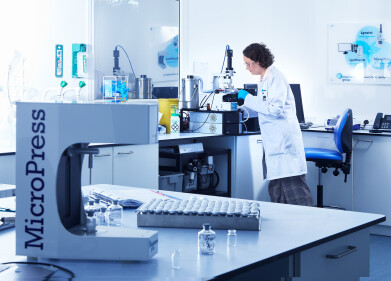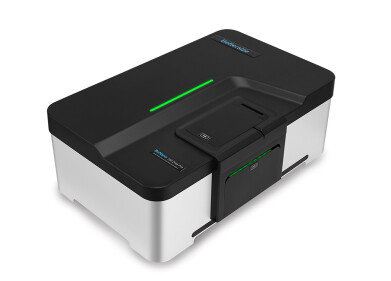Laboratory Products
Do Gut Bacteria Transplants Help You Lose Weight?
Jun 19 2019
Gut bacteria transplants are the latest weight loss craze to sweep the health industry, though according to a preliminary study the controversial technique doesn't help obese people shed pounds or burn fat. The idea was to test if gut bacteria plays a role in obesity or influences levels of GLP-1, a hormone that sends "fullness" signals to the brain. As obese individuals often have different gut microbe makeups than their healthier counterparts, the theory does have some traction.
Led by gastroenterologist Jessica Allegretti, the study distributed capsules containing gut microbes of slim individuals to 11 obese recipients. Another 11 obese individuals received placebo capsules containing no gut bacteria. More capsules were distributed at the four and eight week marks, with Allegretti and her team measuring changes in gut microbe and recording any weight loss.
Gut bacteria capsules fail to trigger weight loss benefits
While previous lab animal studies, as well as anecdotal evidence, suggest that gut bacteria transplants can facilitate weight loss, early findings from the study revealed that gut bacteria transplants had no effect on weight loss.
The study was based on research indicating that when fibre is consumed, gut microbes spur into action and process it into short chain fatty acids. This supports the production of GLP-1 in the small intestine, which sends signals to the brain that the body has consumed enough food. The study was also inspired by other weight loss research suggesting that when people lose weight, they simultaneously experience a significant change in GLP-1 levels.
Investigating GLP-1, aka the "full" hormone
The team suspected that actively changing gut microbe composition could boost GLP-1 production and consequently help treat obesity. Instead, they found that gut bacteria transplants elicit no change in levels of the hormone and have no impact on weight loss.
While GLP-1 levels remained the same, Allegretti does note that obese individuals who received the microbes of slim donors experienced an increase in production of bile acids associated with the breakdown of fat. This suggests that gut microbe transplants could help adjust the metabolism of fat and potentially aid obese patients in losing weight.
For now, replacing gut microbes doesn't appear to be a viable solution for treating obesity. Though Allegretti admits the study was preliminary and that it's still too early to determine how the gut microbiome influences weight gain and obesity. Research is also underway spotlighting the roles of bacteria in the colon and small intestine, which could also be linked to obesity.
Laboratory research plays a central role in supporting breakthrough studies. For a closer look at the latest industry developments don't miss 'News Bites from the UK Laboratory Industry'
Digital Edition
ILM 49.5 July
July 2024
Chromatography Articles - Understanding PFAS: Analysis and Implications Mass Spectrometry & Spectroscopy Articles - MS detection of Alzheimer’s blood-based biomarkers LIMS - Essent...
View all digital editions
Events
ACS National Meeting - Fall 2024
Aug 18 2024 Denver, CO, USA
Aug 25 2024 Copenhagen, Denmark
Aug 28 2024 Phnom Penh, Cambodia
Sep 04 2024 Chiba, Tokyo, Japan
Sep 04 2024 University of Warwick, Coventry, UK
.jpg)

















